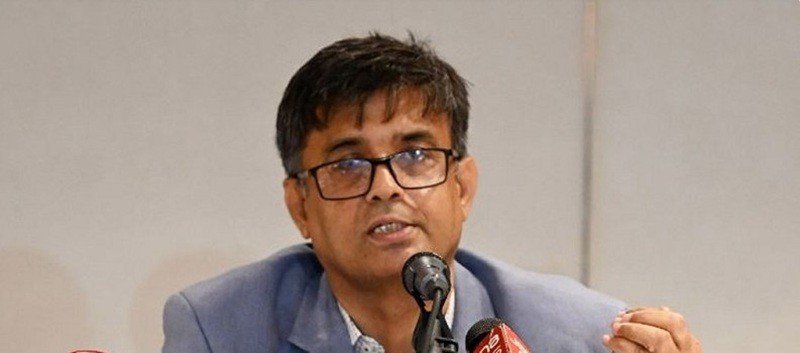12 achievements in 12-month, highlights Press secy
Published: 07 August 2025, 2:28:39

The interim government was formed on August 8 after fascist Sheikh Hasina fled the country on August 5.
Friday (August 8) will mark one year of the interim government.
The Chief Adviser’s Press Secretary Shafiqul Alam outlined the top 12 achievements of the current government over the past 12 months on a Facebook post.
1. Restoration of Peace and Stability
Peace and order returned after the July Uprising, preventing chaos and cycles of revenge. Professor Muhammad Yunus’s moral leadership provided a stabilizing force, guiding the nation toward reconciliation and democratic renewal instead of violence.
2. Economic Revival
Turned around a devastated economy: reduced food inflation from ~14% to nearly half, overall inflation fell to 8.48% (lowest in 35 months), record remittances of USD 30.33 billion, exports up 9%, and the Taka strengthened against the dollar for the first time in years. Banks stabilised.
3. Trade and Investment Gains
Concluded successful trade tariff negotiations with the United States (some experts said we can’t do it as we are a weak government), secured sizable foreign direct investment (including Handa Group’s USD 250 million in textiles, creating 25,000 jobs), and doubled FDI flows compared to the last government’s period. Chinese investors are flocking in Bangladesh.
4. Democratic Reforms and the July Charter
Formed reform commissions, built national consensus across 30+ parties, and finalized the historic July Charter, ensuring institutional accountability and protections against any future return of fascism. The July Charter is expected to usher in a new democratic era with enhanced check and balances in our power structures.
5. Justice for July Massacres
Transparent trials of crimes against humanity committed in July–August are underway, holding perpetrators accountable and reinforcing the rule of law. Four major trials have commenced. Trial of Hasina has begun.
6. Election Roadmap and Reforms
Set February 2026 for free, fair, and festive elections, with inclusion of expatriates, first-time voters, and women. Launching digital consultation platforms for citizen feedback, aiming to make the election a national celebration of democracy. Some 800,000 police, irregular Ansar and military troops will be mobilised to ensure a peaceful general election.
7. Institutional and Legal Reforms
* Independent judiciary strengthened via reform-driven appointments.
* Police reform: human rights cells, bodycams, transparent interrogation rooms, and UN-standard protest protocols.
* Legal reforms: massive changes in CPC and CrPC, new ordinance mandating a maximum 12-hour family notification on arrest, lawyer access, medical safeguards, and online GD filing.
8. Press Freedom and Internet Rights
Repealed the repressive Cyber Security Act, dropped all journalist cases, guaranteed freedom for criticism, and enshrined internet access as a fundamental right, a first in the nation’s history.
9. Foreign Policy Shift
Reoriented Bangladesh’s foreign policy from reliance on a single country toward a balanced, multipolar approach. Expanded cooperation with the US, China, European Union, and others on trade, investment, medical aid, and crisis response, making Bangladesh a proactive, respected regional actor. Made concerted efforts for the revival of SAARC and membership pf ASEAN.
10. Expatriate and Labour Rights
Secured resumption of UAE visas and Malaysia’s introduction of multiple-entry visas. Regularized undocumented workers in Gulf states. Launched plans to send 100,000 youth to Japan and more workers to Italy, South Korea, and Serbia, broadening opportunities for expatriates.
11. Support for Martyrs and Injured Revolutionaries
Meticulously listed all the martyrs and injured of the July Uprising. Provided nearly BDT 1 billion in savings certificates and allowances to 775 martyrs’ families, plus BDT 1.53 billion in aid to 13,800 injured revolutionaries. Sent severely wounded abroad for advanced treatment and rehabilitation.
12. Maritime and Infrastructure Development
Declared the Bay of Bengal a core national resource for a “water-based economy.” Moved to scale up efficiency of Chattogram Port (handling +225 containers daily), expanded coastal development plans, and initiated deep-sea fisheries and industrial projects with global partners.




